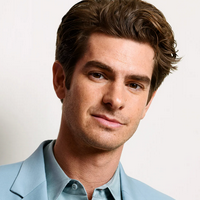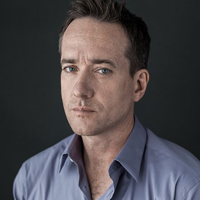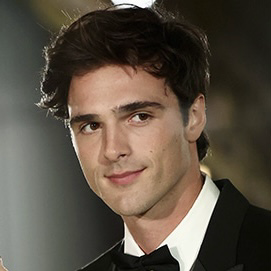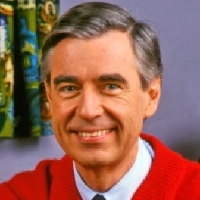Matthew Macfadyen MBTI性格类型
性格
"Matthew Macfadyen是什么人格? Matthew Macfadyen是MBTI中的INFP人格类型,九型中的9w1 - sp/sx - ,五大类型中的RLUAI,Socionics中IEI类型。"
I’ve been thinking about posting on this page for a while but just haven’t known where to begin. Matthew Macfadyen’s been my favourite actor for a very long time and I’ve watched and read a lot of interviews with him. I’ve decided to give this a shot by just listing things as they come to mind… - He has the demeanour of an INFP. He’s intensely shy, and in his younger years had a reputation among interviewers for being cold, closed off and hard to interview. Then, as he started to come out of his shell, certain interviewers expressed surprise to find that he was actually very warm, kind and gentle. He now has a reputation for being really nice. What type could have this kind of transformation apart from an INFP, the type most known for a cold exterior that hides a deeper warmth? In some instances that coldness is still perceptible, especially in interviews that are done in front of large audiences. However, he’s got much warmer as he’s got older and more comfortable being interviewed. - He didn’t tell anyone he was auditioning for drama school in case he didn’t get in. This sort of fear of failure and the judgment of others is very characteristic of IxFPs due to the interplay between Fi-dom and Te-inf. - He finds it difficult to express verbally what’s on his mind. When he’s interviewed, he looks up and around a lot as if searching for a way to express himself, and often trails off mid-sentence (he used to be notorious for not finishing his sentences in interviews, although he seems to have got somewhat better with it over time). This is a common trait for INFPs, who are generally much better expressing themselves in writing. - Despite struggling to express himself, it’s clear that his thoughts about the films, shows and plays he’s in are very abstract, and this discounts ISFP (the only other type, to my mind, he could possibly be). He looks for good writing in his work, and focuses on broader themes and formal structures when describing his films/shows/plays. - He oscillates between intense authenticity and reserve. He’s incredibly honest in interviews, and this is part of the reason he stumbles a lot in them; he never has ‘rehearsed’ answers but rather takes every question seriously and tries to answer it earnestly and authentically, sometimes pausing for awkward lengths of time as he decides how best to answer. On one occasion, he did an interview around the release of Pride and Prejudice where he was deeply honest about the ways he related to his interpretation of Darcy, among other things. It clearly embarrassed him and he pulled back somewhat after that. - Related to this, he’s earnest in interviews even when what he’s expressing may not be considered ‘appropriate’. His demeanour is usually very gentle and sweet, but he sometimes randomly gets rather scathing and/or laughs at things that he perceives as inauthentic, even if this goes against what he ‘ought’ to be saying. He also constantly pokes fun at the idea of being a ‘serious’ actor and resists any expression of pretension; to him, that kind of affectation is artificial. - There are many hints that he’s a perceiver. He didn’t read Pride and Prejudice before beginning work on the film. He’s a hard worker when he’s acting (as INxPs usually are on the things they care about), but he’s not enormously ambitious. After Pride and Prejudice, he went through a phase of being burnt out from all the attention he was receiving and withdrew from acting for a few years until he returned in a really niche, controversial Channel 4 drama. This oscillation between bursts of brilliant work and lulls in activity is common for INxPs. - He’s notorious for corpsing (ruining a scene because he bursts out laughing). He was once asked to leave a film set and get himself together because he couldn’t stop laughing. This is common for strong Fi users because they’re so compelled by their internal emotions despite the emotions of those around them. - He’s deeply attached to his characters and always highlights the good in them. He speaks of Tom Wambsgans lovingly and defends him when interviewers complain about him. One of INFPs’ most recognisable traits is their desire to find the good in everyone; it’s due to their idealistic attachment to the ‘idea’ of people, and can cause them to overlook negative traits even when it’s unhealthy to do so. - This isn’t evidence in itself, but it’s worth noting that he’s an incredible eye actor. I’m by no means the first person to observe that this is a common talent among INFP actors, likely because they’re so good at imaginatively constructing the consciousness of a fictional person (Ne) and accessing its emotional world so deeply (Fi). I could go on but this is ridiculously long. Needless to say, there’s little question in my mind that he’s an INFP. The only other type he could possibly be is ISFP, but he’s too abstract for that. He’s certainly not an INFJ.
背景
David Matthew Macfadyen (born 17 October 1974) is an English actor. He played MI5 Intelligence Officer Tom Quinn in the BBC television drama series Spooks, Mr. Darcy in the 2005 film Pride & Prejudice and Daniel in the Frank Oz comedy Death at a Funeral.
相关人物

Emma Watson

Cillian Murphy

Robert Pattinson

Tom Holland

Anya Taylor-Joy

Andrew Garfield

Tom Hiddleston

Benedict Cumberbatch







